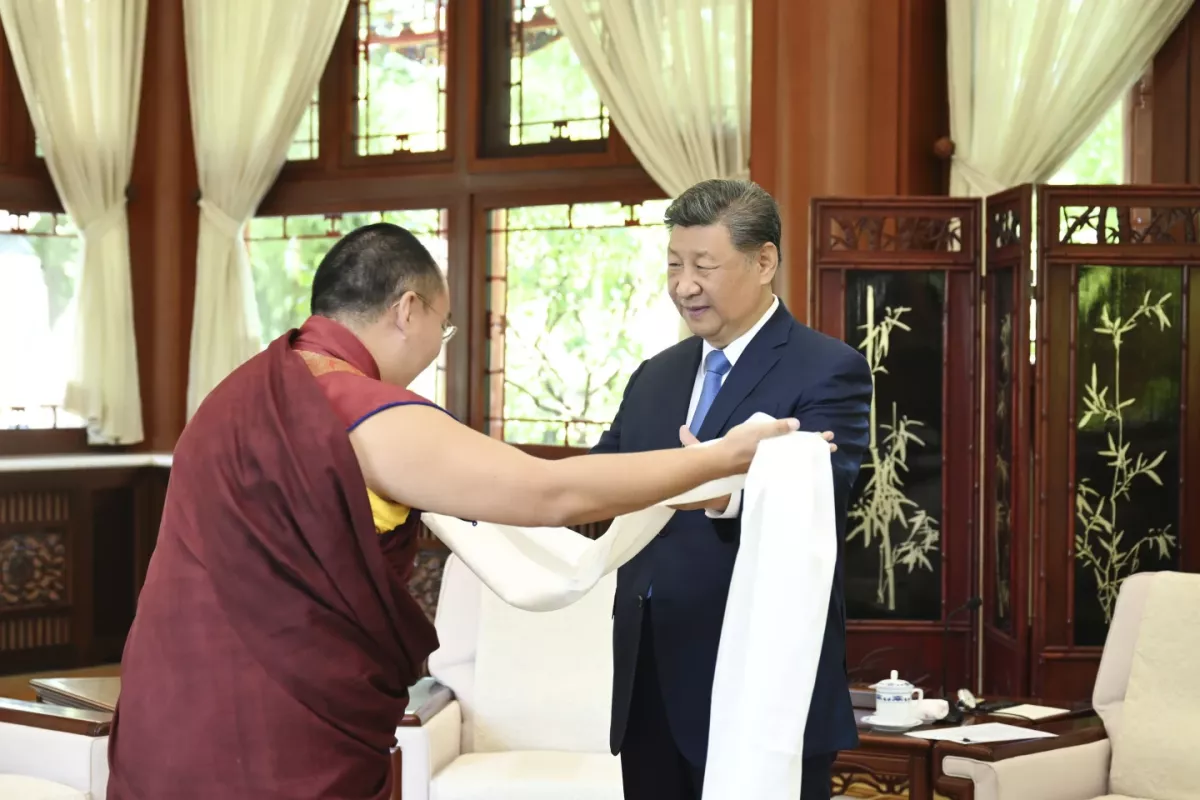Geopolitical power struggle behind choice of next Dalai Lama Beijing, New Delhi, Washington on high alert
The next selection of the subsequent Dalai Lama holds profound geopolitical consequences and is far more than a religious tradition.
On July 2, the exiled Tibetan spiritual leader declared that there will indeed be a successor, a statement widely interpreted as a defiant message to Beijing: the centuries-old institution will continue beyond his lifetime, and only his close circle—not the Chinese government—will have the authority to choose his reincarnation.
He made the announcement via a video message released ahead of his 90th birthday, stating that the Gaden Phodrang Trust, the body responsible for managing his affairs, will oversee the identification process.
“No one else has the authority to interfere in this matter,” he said in Dharamshala, the Indian hill station that serves as the seat of the Tibetan government-in-exile. “As per tradition, the search for my reincarnation and the appointment of the 15th Dalai Lama will proceed.”
Previously, the Dalai Lama had suggested that he might be the final figure in the line, as reported by The Guardian, but he said that appeals from the Tibetan public—inside both exile communities and Chinese-controlled Tibet—along with discussions with senior religious leaders, persuaded him to reverse course.
“Considering all these appeals, I affirm that the Dalai Lama institution will continue,” he told a group of senior monks. He has also said that his successor would be born in a free nation, hinting that the next Dalai Lama could emerge from the global Tibetan diaspora, which numbers around 140,000 according to the article, half of whom reside in India. He has further suggested that the next spiritual leader might be an adult and not necessarily male.
Traditionally, Tibetan Buddhist leaders identify and train the next Dalai Lama only after the current one passes away. Should the 14th Dalai Lama continue to provide more concrete guidance in the near future regarding the next selection, the article states this would mark a significant departure from historical norms.
“The message today is clear: the institution of the Dalai Lama will continue,” said Samdhong Rinpoche, the Gaden Phodrang Trust’s second-ranking figure, at a press briefing in Dharamshala. “There will be a 15th Dalai Lama. There will be a 16th.” He added that the current Dalai Lama will issue specific instructions for the reincarnation process.
The Dalai Lama, a Nobel Peace Prize winner who fled Tibet for India in 1959, is viewed by Beijing as a separatist figure. The Chinese government quickly rejected his recent remarks, asserting that only the state has the right to approve any reincarnation of Tibetan Buddhist leaders.
“The reincarnations of the Dalai Lama, the Panchen Lama, and other major figures must follow the golden urn procedure and be approved by the central government,” said Chinese foreign ministry spokesperson Mao Ning.
“Tibetan Buddhism originated in China and has uniquely Chinese characteristics,” she stated during a press conference.
This renewed dispute highlights the long-standing struggle for control over Tibetan Buddhism’s spiritual leadership. While most Tibetan Buddhists inside Tibet and abroad oppose Chinese interference, the article recalls that Beijing—having annexed Tibet in 1951—insists on complete authority over the religious process.
The government has enshrined legal requirements that all senior Tibetan religious leaders must receive official approval. The golden urn system, a Qing dynasty tradition of selecting names from a ceremonial vessel, remains the only state-sanctioned method.

Beijing has already once exercised this power. Following the death of the 10th Panchen Lama, Tibet’s second-highest spiritual authority in 1995, the Dalai Lama recognized a six-year-old boy as the true reincarnation. According to The Guardian’s article, the child and his family were promptly detained by Chinese authorities a few days later and have since disappeared.
China appointed its own Panchen Lama in his place, though he has been widely rejected by Tibetans. This Beijing-backed Panchen Lama met with President Xi Jinping and reaffirmed his loyalty to the Communist Party.
India, which has hosted the Dalai Lama for over six decades, also has strong interests in the continuation of his spiritual legacy. Though New Delhi officially acknowledges Tibet as part of China, it permits the Tibetan government-in-exile to operate from Dharamshala.
According to Al Jazeera, the issue of reincarnation has also caught the attention of the United States, which has long criticized China’s human rights record and views the Tibetan cause as a symbolic counter to Beijing’s authoritarianism. For many in Washington, preserving the Dalai Lama’s institution is therefore seen as central to maintaining the cohesion of the Tibetan movement.
By Nazrin Sadigova








